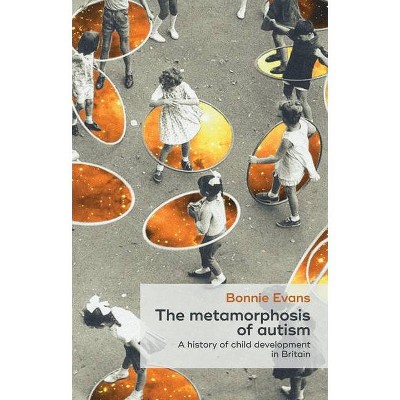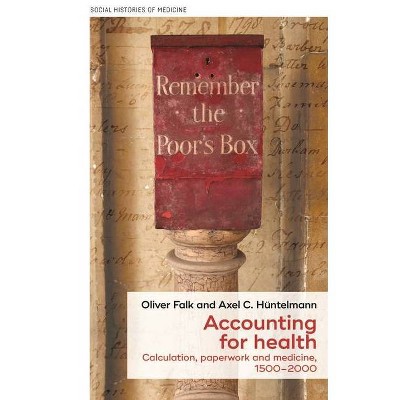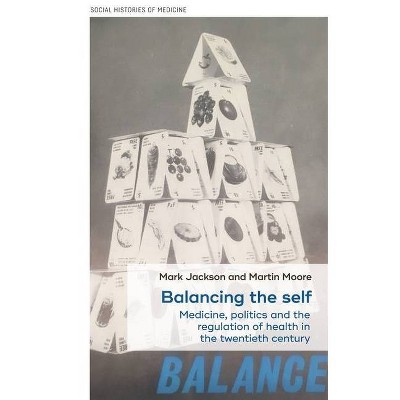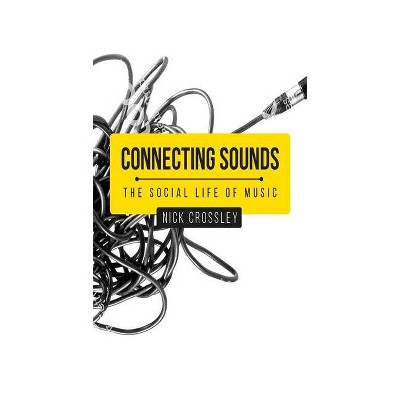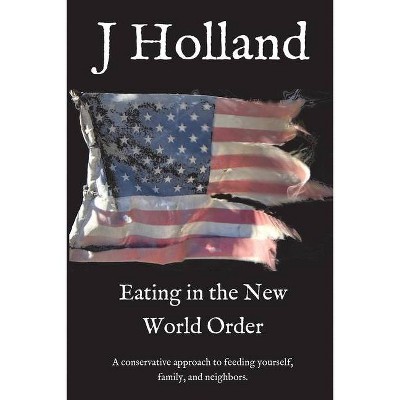Global Health and the New World Order - (Social Histories of Medicine) (Hardcover)
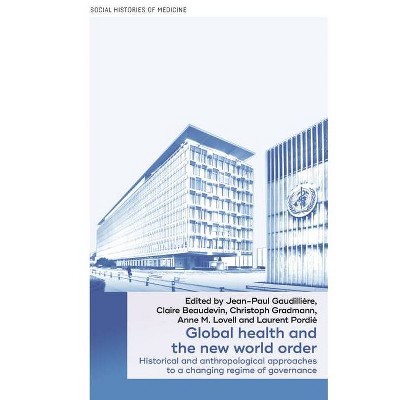
Similar Products
Products of same category from the store
AllProduct info
<p/><br></br><p><b> About the Book </b></p></br></br>What does global health stem from, when is it born and how does it relate to the contemporary world order? In this book, historians and anthropologists tackle these questions by exploring the transnational circulation of drugs, bugs, therapies, biomedical technologies and people in the context of the "neo-liberal turn" in development practices.<p/><br></br><p><b> Book Synopsis </b></p></br></br>The phrase 'global health' appears ubiquitously in contemporary medical spheres, from academic research programs to websites of pharmaceutical companies. In its most visible manifestation, global health refers to strategies addressing major epidemics and endemic conditions through philanthropy, and multilateral, private-public partnerships. This book explores the origins of global health, a new regime of health intervention in countries of the global South born around 1990, examining its assemblages of knowledge, practices and policies. The volume proposes an encompassing view of the transition from international public health to global health, bringing together historians and anthropologists to analyse why new modes of "interventions on the life of others" recently appeared and how they blur the classical divides between North and South. The contributors argue that not only does the global health enterprise signal a significant departure from the postwar targets and modes of operations typical of international public health, but that new configurations of action have moved global health beyond concerns with infectious diseases and state-based programs. The book will appeal to academics, students and health professionals interested in new discussions about the transnational circulation of drugs, bugs, therapies, biomedical technologies and people in the context of the "neo-liberal turn" in development practices.<p/><br></br><p><b> From the Back Cover </b></p></br></br>The phrase 'global health' appears ubiquitously in contemporary medical spheres, from academic research programmes to websites of pharmaceutical companies. In its most visible manifestation, global health refers to strategies that address major epidemics and endemic conditions through philanthropy and multilateral, private-public partnerships. This book explores the origins of global health, a new regime of health intervention in countries of the global South born around 1990, examining its assemblages of knowledge, practices and policies. The volume proposes an encompassing view of the transition from international public health to global health, bringing together historians and anthropologists to analyse why new modes of "interventions on the life of others" recently appeared and how they blur the classical divides between North and South. The contributors argue that not only does the global health enterprise signal a significant departure from the postwar targets and modes of operations typical of international public health, but that new configurations of action have moved global health beyond concerns with infectious diseases and state-based programmes. <i> Global health and the new world order </i>will appeal to academics, students and health professionals interested in new discussions about the transnational circulation of drugs, bugs, therapies, biomedical technologies and people in the context of the neo-liberal turn in development practices.<p/><br></br><p><b> About the Author </b></p></br></br>Jean-Paul Gaudillière is historian of science and senior researcher at the French National Institute for Medical Research and coordinator of the European Research Council project 'From international to global: Knowledge, disease and the post-war government of health' Claire Beaudevin is anthropologist and researcher at the French National Center for Scientific Research Christoph Gradmann is historian and Professor at the University of Oslo for the Department of Community Medicine and Global Health Anne Lovell is anthropologist and senior researcher (emeritus) at the French National Institute for Medical Research Laurent Pordié is anthropologist and researcher at the French National Center for Scientific Research
Price History
Cheapest price in the interval: 105.99 on October 27, 2021
Most expensive price in the interval: 105.99 on December 20, 2021
Price Archive shows prices from various stores, lets you see history and find the cheapest. There is no actual sale on the website. For all support, inquiry and suggestion messages communication@pricearchive.us
